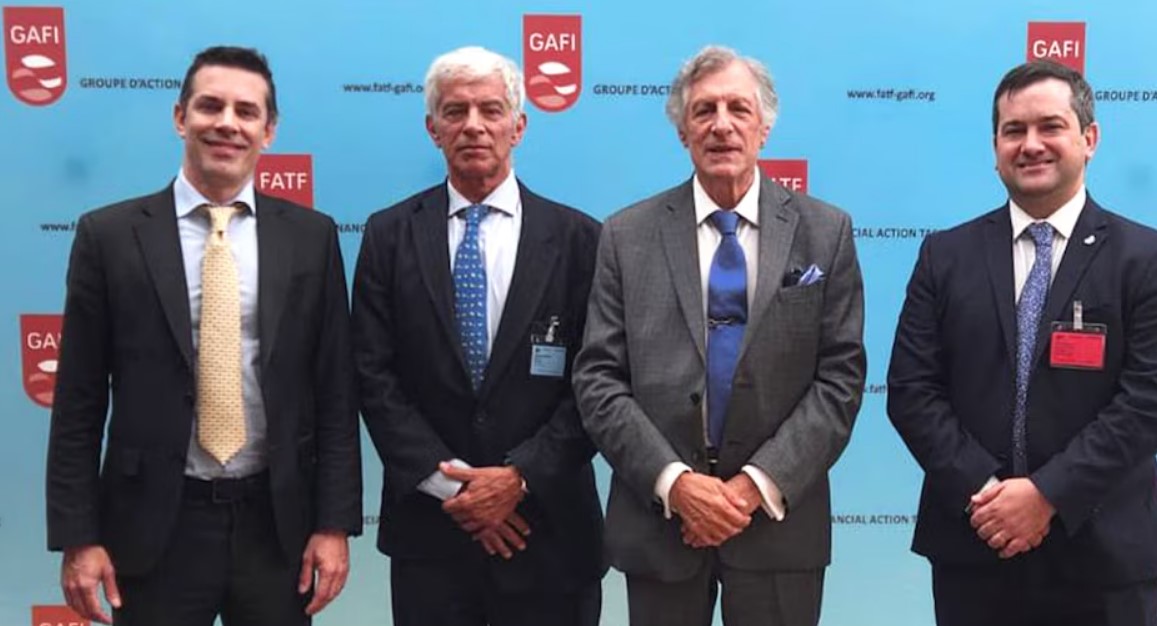Argentina began regulating bitcoin exchanges to comply with FATF recommendations.
The country was already on the FATF gray list in the past, during the Cristina Kirchner government.
The plenary session of the Financial Action Task Force (FATF) confirmed that Argentina avoided being included on the gray list, which penalizes countries for deficiencies in the fight against money laundering and the financing of terrorism. This result is based on the Mutual Evaluation Report of the Argentine Republic, approved after an evaluation process that lasted more than a year.
The advertisement occurred after a visit in March 2024, when a FATF delegation traveled to Argentina. This visit was crucial, as it motivated the Argentine government to implement specific regulation for bitcoin (BTC) and cryptocurrency exchanges. This regulation includes the creation of a supplier registry and the use of clients’ personal data, as reported by CriptoNoticias.
In recent weeks, the final report was sent to the 200 jurisdictions that are part of the FATF global network to receive your comments. The vote on the approval of the document was carried out in the presence of the Argentine delegation in France, which traveled to the European country to meet with the group.
Mariano Cúneo Libarona, Minister of Justice and head of the delegation, said after the vote that “thanks to the hard work of Javier Milei’s government” Argentina avoided falling on the FATF gray list.
“From the Ministry of Justice, we responded to the observations made to us, to strengthen compliance with international standards, reaffirming our commitment against money laundering and the financing of terrorism,” said the official, review Infobae.
The minister also mentioned that, in the last year, efforts were deployed throughout the public administration, the Judiciary and the Public Prosecutor’s Office. He also recognized that the FATF identified some deficiencies in the Argentine system against money laundering, but expressed satisfaction with the approval of the report.
A cost for bitcoiners
Although Argentina has managed to avoid being included in the FATF blacklist, this evasion entails sacrifices in terms of privacy and autonomy for bitcoiners and cryptocurrency users. The new regulation requires increased surveillance and reduced privacy for those who use cryptoasset exchanges within the country.
The bitcoiner community has already clearly expressed its discontent with these new provisions, especially the obligation of exchanges to share users’ personal information, which they consider a clear invasion of privacy, one of the fundamental principles of Bitcoin.
What’s more, there are those who qualify these measures by Argentina to comply with the FATF, as treasonous actions by President Javier Milei towards cryptocurrency users in the country, as reported by CriptoNoticias.
The FATF, made up of the 40 most important countries in the world including the United States, Germany, China and Brazil, along with organizations such as the IMF and the World Bank, is a key organization in global financial regulation.
Being included in the FATF black or gray list can have serious economic consequences for a country, such as financial restrictions and loss of international confidence.
Argentina was already on the gray list during Cristina Kirchner’s second government, as a result of having a weak system against money laundering and terrorist financing. The situation was corrected during the government of Mauricio Macri.
The full Mutual Evaluation Report document will be published before the end of the year by the FATF, and will detail the steps that Argentina must follow to strengthen its system against money laundering, terrorist financing and terrorism itself. This achievement is seen as a victory for the government of Javier Milei, which has prioritized alignment with international standards in financial and security matters.






Leave a Reply